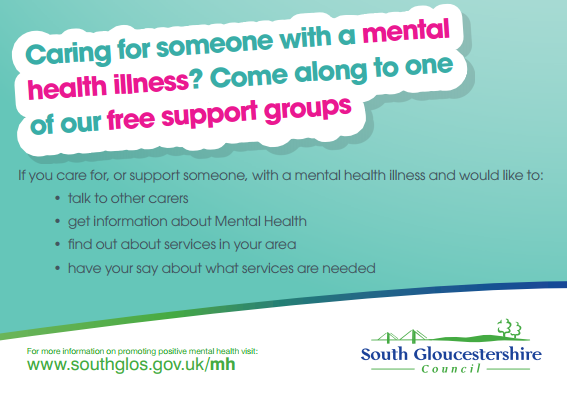You can find information on specific mental health issues within the children’s and young people’s sections.
Parenting can be the most rewarding and the toughest of jobs. We all want our children to be healthy and happy. Thinking about your child’s mental health and helping them to develop their ability to cope with life’s challenges is one of the most important things you can do.
Children with positive mental health are more likely to have good physical health and achieve academically, and are less likely to misuse drugs and alcohol.
Below you will find information, services and resources created especially for parents. Resources include how to support your child as well as how to look after your own wellbeing.
The majority of young people experiencing emotional distress are not mentally ill but may require extra support and reassurance. Signs of distress to look out for include:
Emotions
- Sadness
- Anxiety
- Fear and worry
- Guilt
- Anger
- Irritability
- Mood swings
- Numbness
- Hopelessness
Physical
- Rapid heartbeat and breathing
- Lack of energy
- Dizziness, headache and sweating
- Dry mouth, nausea
- Aches and pains
- Sleeping too much or too little
- Overeating or loss of appetite
- Weight loss or gain
- Chronic fatigue
- Neglecting personal appearance
Thinking
- Self-criticism
- Worries
- Pessimism
- Impaired concentration
- Mind racing
- Confusion
- Suspiciousness
- Emerging unusual beliefs
Behaviour
- Withdrawing
- Avoiding situations
- Crying
- Loss of motivation
- Repetitive and/or compulsive
- Self-harm
- Risky behaviours
- Alcohol/substance misuse
Responding
- Let the young person know you’re concerned and want to help
- Listen attentively and non-judgementally:
- Open and relaxed posture, appropriate eye contact
- Open questions to get them talking
- Reflect back words or phrases to show you are listening and check understanding
- Avoid giving advice!
- Give reassurance that what they are experiencing is common and there is support available
- Where appropriate, enable access to professional help – see services in the professionals section of this website
- Encourage self-help strategies – see the ‘Looking after yourself’ section.
If you have concerns that a young person may be considering suicide, ask directly if this is the case and take appropriate action.
Every Mind Matters
Most families have experienced upheaval in their daily lives during the pandemic. With children and young people now back at school or college, Public Health England’s new Better Health – Every Mind Matters campaign provides NHS-endorsed tips and advice to look after children and young people’s (CYP) mental wellbeing.
The advice available on the Better Health – Every Mind Matters website has been developed in partnership with leading children and young people’s mental health charities. It is designed to help parents and carers spot the signs that children may be struggling with their mental health and show the actions they can take to support them. In addition to the advice for parents and carers the site also provides tools to help young people build resilience and equips them to look after their mental wellbeing.
First Wednesday of every month @ The Pop Inn Cafe, West Walk, Yate BS37 4AX from 5.30 to 7pm
This session is for anyone looking after a teenager who is struggling with their mental health. They do not need to currently be accessing any OTR services. In these relaxed and informal sessions, we discuss:
- What is mental health?
- How is mental health different for teenagers?
- How do we look after our mental health?
Filton – 1st Wednesday of every month, 6.30pm to 8.30pm
Upper Horfield Community Trust, Eden Grove BS7 0PQ
Yate – 3rd Tuesday of every month, 2.30pm – 4.30pm
Yate Library, West Walk, BS37 4AX
Kingswood – 2nd Monday of the month, 10.30am – 12.30pm
United Church, Moravian Road, Kingswood, BS15 8LY
For more information email: sglosmhcarers@yahoo.com
The Carers Support Centre is a charity which provides support, information and advice to carers of any age living in Bristol and South Gloucestershire.
To find out more visit – www.carerssupportcentre.org.uk/young-carers
Carersline: 0117 965 2200
Young Carers: 0117 958 9980
If you are a parent carer in South Gloucestershire with a child aged 0-25 with a Special Educational Need and/or Disability (SEND), South Gloucestershire Parents and Carers are here for you!
We are all parents/carers ourselves of children or young adults with a variety of SEND. We are on your journey. We have a real and in depth understanding of the issues we all face; from the challenges, to the joys our children bring. No diagnosis is needed to part of our group!
We would like to welcome you into our friendly community and join us in the opportunities we offer for families of SEND children to come together, provide support and share experiences.
Find out what we do by looking through our website and on Facebook and Twitter.
A small welcoming group set up by parents to support families with children and young people with any additional needs, http://www.jigsawthornbury.org.uk/
Young Minds is the UK’s leading charity championing the wellbeing and mental health of young people. It has a great section just for parents. You can read the parents survival guide, with sections about – you and your child, helping yourself and looking after yourself. www/youngminds.org.uk/find-help/for-parents/
The #Take20 Parents hub gives lots of tips about finding ways to create a relaxed space for talking with your child, by taking 20 minutes to do an activity together.
You can call the Parent Helpline – 0808 802 5544 (Monday to Friday 9.30am to 4pm, free for mobiles and landlines)
There is also the Parents Lounge – where the Parents Helpline experts give their advice and tips on a range of topics chosen by you. Once a month experts are on hand to answer your questions on a chosen topic live on Facebook.
Previous sessions include:
- Having difficult conversations with your child
- Responding to teen behaviour
- School refusal
- Responding to anger in children
- Managing anxiety in children
The Anna Freud National Centre for Children and Families has developed and delivered pioneering mental health care for over 60 years.
Anna Freud aims to transform current mental health provision in the UK by improving the quality, accessibility and effectiveness of treatment. They believe that every child and their family should be at the heart of the care they receive, working in partnership with professionals.
You can read their publication – Talking Mental Health with Young People at Secondary School – advice for parents and carers. www.annafreud.org/media/6310/secondary-parents-leaflet-final-proofed.pdf
For parents and carers who are looking for help the centre offers a range of specialist treatments and assessments and for children, young people and families. The service is made-up of highly experienced clinicians from a wide range of disciplines in including Clinical Psychology, Child and Adolescent Psychotherapy, Psychiatry, Play Therapy, Social Work and Family Therapy (for more info on disciplines please click here).
If you would like to find out more please contact the main reception and ask to speak with one of the clinical support team.
- Phone: 020 7794 2313
- Email: info@annafreud.org
- Website www.annafreud.org/what-we-do/our-help-for-children-and-families/looking-for-help-parents-and-carers/
Place2Be is the UK’s leading children’s mental health charity providing in-school support and expert training to improve the emotional wellbeing of pupils, families, teachers and school staff.
Visit www.place2be.org.uk/what-we-do/parent-carer-resources.aspx to view and download Place2be’s resources, written to help parents and carers to support the emotional wellbeing and mental health of their children and young people.
Find publications on the following:
The Breakthrough mentoring team, established in 2003, support people of all ages from children to adults, with a range of needs.
We assess individual need through our referral process to create a bespoke support plan. Based on an initial face to face meeting, we will match the service user to the mentor we think they will get on with the best, based on both personality and interests.
We work one to one with our service users, however if required, we can also provide group support. During the initial meeting, we will look to find out about the activities that interest and inspire the service user, which can range from creative arts, outdoors & nature, sport and fitness, getting out and exploring areas, volunteering, life skills, community groups to relaxing and talking. All of the activities we provide help our service users to build natural relationships, confidence and positive mental health.
Each Breakthrough placement needs to be funded in order for us to provide support to a service user. We can support individuals as part of their Direct Payments allowance, as part of contracts within organisations, schools and academies or we can arrange individual payments if you are self-funding
To make a referral, please download and complete a referral form -which can be found on the Breakthrough Mentoring referral page – and follow the referral instructions on the page.
For more information, please contact us by:
Tel: 01454844449
Introductory information about managing anxiety for parents and carers of children and young people.
Happy Maps is a website full of information and advice for all ages from babies to young adults.
Worried about your child’s behaviour or mental health and not sure what is normal? You’ll find everything from sleep problems to anxiety, bullying, self-harm, coping with divorce, autism, ADHD, gender dysphoria and more.
Most families have experienced upheaval in their daily lives during the pandemic. With children and young people now returning to school from 8th March, Public Health England’s new Better Health – Every Mind Matters campaign provides NHS-endorsed tips and advice to look after children and young people’s mental wellbeing.
Here are some resources to help with the return to school – this can be an anxious time for children and young people having not attended school for a prolonged time and things being very different on return.
- #Southglosconnect – SENsational news for parents are carers
- Young Minds – help for parents
- Child Mind Institute – how to cope with an anxious child
- Starting a conversation around returning to school
- Off the Record – Hopes and Fears worksheet for returning to school
- Am I ready for school today?
- Gloucestershire Healthy Living and Learning – Rainbow Journal


